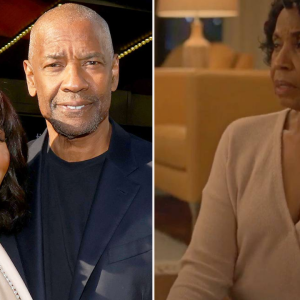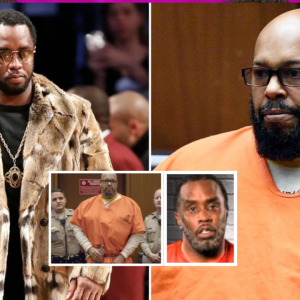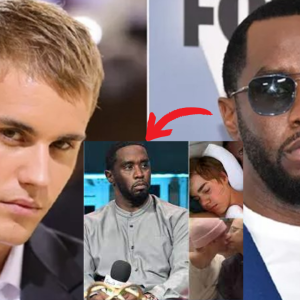The Kick-Ass actress gets candid about growing up in Hollywood and speaking her mind with Charlize Theron.

All clothing and shoes by Louis Vuitton SS21 Collection

All clothing and shoes by Louis Vuitton SS21 Collection
A few weeks into 2021, Chloë Grace Moretz is about to turn 24. For those of us who grew up watching (and rewatching) the actor star in cult classics like 500 Days of Summer and Kick-Ass before she even entered her teens, we’ve witnessed Moretz navigate over a decade growing up not only working full-time, but under the pressure of the pubic eye. We’ve watched her evolve as an actor without losing sight of what drew her to it in the first place, even if that has meant taking periods of time out to reassess the direction of her career. We’ve also watched her set boundaries with her time and her personal life and her privacy, managing all of the intricacies of fame without giving them power over her worth. And most strikingly, we’ve watched Moretz find her voice and use it, unapologetically, to speak about the matters she feels are important.
From Suspiria and Greta to her latest release, Roseanne Liang’s action-horror whirlwind Shadow in the Cloud, Moretz’s recent character choices have seen her increasingly push her own boundaries. Her next film, this spring’s Tom and Jerry, is no different, seeing her star alongside animated versions of our favourite Hanna-Barbera characters in their first live-action adventure in New York. Carryingsolo improvisation scenes with impeccable comedic timing, Moretz’s performance underscores her versatility and technical skill as an actor — something her peers have praised her for from the start.
Speaking to one of those peers, her friend, frequent collaborator and revered actor-producer Charlize Theron, here Moretz reflects on the “good fear” that consistently draws her to unconventional and challenging roles, the values that have guided her career, and what she has learned taking time for reflection this year.


All clothing and shoes by Louis Vuitton SS21 Collection

All clothing and shoes by Louis Vuitton SS21 Collection

CT: I guess we could start at the beginning, because the thing that I find so interesting about you — I’m like a dinosaur, I’ve been doing this for so many hundreds of years — but you’re only 23, right?
CGM: Yeah, 24 in a couple of weeks.
CT: You have always been on my radar; it feels like I’ve always known about you as an actor. How old were you when you started?
CGM: I was five when I started, and I got my first film at six.
CT: Tell me a little bit what that is like, because I have a six-year-old… Did this come from you? Was it interest on your part? How did you bring this up to your mum?
CGM: Yeah, I mean you know my mother! She’s pretty tough.
CT: Your mum’s a broad, I love her.
CGM: Such a broad. Zero interest in her kids being in the industry. She was like ‘I have heard stories; I’ve seen the terror tales on 60 Minutes ; I’m good’. But it was really me watching my brother, Trevor, who you know really well, be in a professional performing arts high school in New York. I would hear the monologues that he would recite in our apartment while we were there, and I would memorise them at like four and a half, five years old. I would start reciting pages and pages of dialogue.
CT: Did you watch movies at that age?
CGM: Oh yeah. We would watch movies over and over and we would recite every line; as the characters were speaking on screen we’d know what they were about to say. We’d watch all of the old school movies like Gone with the Wind or Casablanca, all these epics, and we would act them out. In the same way that a kid would probably like playing basketball, it was just something that I was like ‘This is really fun, and I don’t know why I can go to these places, but I can’. Also when we started the auditioning process, I was never really affected by not booking things. I was just like ‘OK, that sucks, but on to the next one’. So that was also a thing where my mum realised I didn’t get caught up in thinking it was real.
CT: That was my next question: how did you navigate that?
CGM: That’s really the thing where I chop it up to my mother and my brother. I was so insulated that it was always like ‘If you don’t get it, that’s their loss’. That was always the way it was proposed to me. I think if my mum and my brother had been like ‘Oh god, if we don’t get this project it’s going to be over’, then it would have perpetuated those emotions because, as you know, kids will pretty much take on what their parents are telling them at that point in time…
And it wasn’t until I was really 11 years old, with Kick-Ass, where I really started getting negative things thrown at me and people coming at me being like ‘How could you perpetuate gun violence? Or violence in young women? Or cursing?’
CT: Are you serious? Wow.
CGM: I had interviewers look at my mother and go ‘You’re a terrible mother for allowing your daughter to do this film’. Like what are you talking about?! It was a learning curve at that point, and that’s when I learned to speak up for myself and not be silenced by all that — which is something I really learned from you growing up. You were incredibly outspoken and you’ve stood up for yourself, what you believe in, and women across the board. That was definitely something where I was like ‘Well if they’re doing it, yes I’m 11, but I’m going to try to do it too’. And do it eloquently — speak in a way where I can get my point across diplomatically, not be aggressive or put someone down, but just tell my story.
CT: You do it so eloquently. Honestly, I don’t think I’m that eloquent. I’m like a truck driving through… But you do such a good job at it. Did you ever feel during your career that you weren’t happy with the direction it was taking? Were there periods that you can vividly remember, and they don’t even have to be that far back, where you just went ‘This is not where I want my career to be’?
CGM: Yeah, there was definitely the growing pains of the public light. I was OK with it for years, and all of a sudden around 18 I started getting a lot of anxiety with the idea of being on a carpet. I started realising that those cameras are eyes and lenses.
[…] That was a hard thing, where I started to realise ‘I hate that this picture is online’, or ‘I went to the grocery store and looked kind of crazy and I hate that that photo is out there’. A real reality I think we realise, as actresses especially, is some of that you kind of have to curb on your own. You have to realise if you don’t want to get pictured, the sad thing is you’ve got to be a little sneaky with where you go and how you do it. I’ll use my mum’s car instead of my car and I’ll get around things.
And then I really started to fall in love with finding my own anonymity — realising that you can be who you want to be in front of the world and you can meld those two personas, but also protecting who I am at home. I really fell in love with privacy, honestly. By the time I turned 21 I took a year off from acting and I took a year off from the spotlight. I didn’t want to be in front of anything. I just sat back and was like ‘Who am I? Who am I as a young woman? What is it that I’m really standing up for? Are the projects I’m doing igniting that flame underneath me and inside my soul, in the way that it did when I was five years old?’


All clothing and shoes by Louis Vuitton SS21 Collection

All clothing and shoes by Louis Vuitton SS21 Collection

CT: So when you get excited about doing a movie, what is your approach to understanding the character that you’re going to play? How do you prepare? I’m sure it’s not the same every single time, but can you give the readers some insight into how that can be?
CGM: First and foremost, when a script comes across I think the biggest thing that I search for now is being a little afraid. The good fear: ‘Can I really achieve this? Am I biting off more than I can chew?’ When I start to feel those things inside me — ‘Am I good enough for this?’ — that’s when I’m like yeah, I’m going to choose this project.
So now, going into that place, one thing that I have found more important as I grow up is doing the research and trying to glean real people’s emotions or experiences that they’ve gone through if I haven’t lived through it. [I] try and get on the ground with that and immerse myself a bit more, but immerse myself to a point where I don’t feel like I’ve lost sight that it is still putting yourself into a character, and trying to keep that buffer there. But really trying to push myself into a position where I feel like by the time I show up on set, I know this character inside and out and I know the dialogue inside and out.
CT: I have to just have a moment to fan out on your new movie, Shadow in the Cloud.
CGM: Did you like it?
CT: I don’t even know how to articulate how I love it, and how much I love it, and the perplexities within all of that loving. I don’t want to give anything away, because what was great for me when I watched it was that I did not know a thing. I will just say this: you need to go and see this movie. It is insane. But in the greatest way. You and Roseanne, however you guys work together, whatever the process was, I don’t know what it is but don’t tell anybody because it is magic.
CGM: Thank you!
CT: That movie has everything that I would run away from as an actor I would literally be like ‘No way, I’m not touching that’. Not only do you embrace it, but you strap on your flak jacket and lean in so much that I, at the end, wanted to take my computer and just mic drop it. I was like ‘That’s it, I’m quitting the business because Chloë just did it all’. Not giving anything away, there are things in the story that lean into what could be so tropey for women. But you guys take all these cliché, tropey things and you throw in a good dose of punk rock and turn it on its head. […] I’m just so happy this movie exists, because it will literally be a go-to movie for me in everything that I pitch, or that I develop, or that I think of, because you guys pushed so far. I literally watched it back-to-back. I swear to God, I’m not— you know me, I’m a bitch —
CGM: I know…


All clothing and shoes by Louis Vuitton SS21 Collection

All clothing and shoes by Louis Vuitton SS21 Collection

CT: You are unbelievable in it. And I said to Beth Kono, my producing partner who you’ve worked with twice, ‘If you gave this role to anybody else, this movie would be terrible’. And I mean that in the best possible way. The writing was trying to push, the direction was pushing, but if you didn’t have an actress who could ground all of that then the movie just doesn’t work. And you are 100% there in every single frame. Can I talk more about how much I love this movie? So that’s a long-winded way for me to get to… You can’t really put this movie in a genre box, it doesn’t conform to anything and I love that about it. But when it comes to genre, do you have a preconceived idea in your head of ‘I’d like to do this’? Or does something like that show up, and you read it and go ‘Well, this is nuts’?
CGM: Kind of like what I was saying, I wanted to be scared. That was a project that terrified me. And not only was it terrifying, it was little to no money, shot in New Zealand. We had 21 days to shoot it, and the working schedule was about 15 pages a day once we got into it. So I was shooting 15 pages a day, learning my dialogue, I had a mini script in the turret and between takes I was learning the next week’s dialogue because it was so intense. What was crazy is I made that and Tom and Jerry back-to-back. I went straight from New Zealand to London to film Tom and Jerry, which is 180, the most different ever! Tom and Jerry scared the hell out of me because I was talking to inanimate objects. I’m sitting there talking to nothing, and then having to improv…
CT: Whatever this relationship was, I think you and Roxanne worked really, really well together. Do you have other directors, do you have a dream list? People always ask me that, and [it’s] always, to me, Danny Boyle. Is Danny Boyle going to read this? Because I really want to work with Danny Boyle! Who’s that person for you?
CGM: I think Alma Har’el is so cool, such a badass. Chloé Zhao. Bong Joon Ho. People that really push the envelope and go to places that bridge that narrow gap of right and wrong, or funny and sad, and so on.
CT: Do you think you’re going to direct?
CGM: I think so. I have always wanted to direct. Are you going to direct? You’re ready to direct…
CT: I don’t know if I’m ready to direct. I’ve had to out of necessity, but I think we’re the same in the sense that if the right thing came along and it was in the right place in my life… If that time came, then yes for sure. But I’m not aching for it. Are you aching for it? I think some people talk about it in an aching manner.
CGM: I think I have ached for it, I have an itch for it. I feel like with so many years I’ve been on set as a child and all I could do is really soak up what was going on around me, the thing I was most interested in as a kid was cinematography. The camera guys and what they were doing and the equipment they were using, why they were using it and how I could cater to them to get the best out of my performance in the film. I love the science behind that and the geometry behind filmmaking.
CT: You were a dream to work with, and this is why I keep making movies with you because very few actors have that awareness that you’re talking about. The majority of actors think that they just show up and they have to know their lines. They’re so unaware of their environment, what that person does, what that person does. They’re so unaware of time! Sometimes I just want to say ‘Can you please produce a movie so that you can understand time is really valuable? And when you are in your trailer and you don’t come out, you screw everybody over!’
CGM: Literally, it’s disrespecting everyone


All clothing and shoes by Louis Vuitton SS21 Collection

All clothing and shoes by Louis Vuitton SS21 Collection

CT: You have such a great awareness of all that stuff. Listen, it’s been a crazy year. I’ve learned many things that I’m terrible at this year, one being a homeschool teacher… What have you learned about yourself? What’s your mental state these days?
CGM: At the beginning I was like ‘I want to keep working, why aren’t we still doing that?’ Then having the time to sit back, take the moment, take a breath, made me realise that going back to the way the pace was before isn’t right. I made a film this fall and we worked 11-hourdays. I was like ‘What is that?!’ But I realised we were all doing better work, we were all healthier, we all felt better. I think the new pace we’re going into — to respect our own time, and to respect the process that we should be able to
take as creators and not have to rush so much — I hope that’s one thing that we do glean outside of this.
[…] And that goes for my personal life as well. I used to wake up and go and do this meeting and this meeting, workout and eat this food. It was so regimented. I think I learned my limits and I learned that I can give myself a little bit more leeway than I was before; I can be less hard and less strict on myself. And to give into the fact that when you’re able to sit in your own quiet, there’s a lot of stuff that comes up that you don’t deal with when you’re just working all the time.
CT: We’re living in very interesting times, a lot of turmoil. Not only a pandemic and so many lives lost, but also a lot of coming to terms with systemic issues, not only in our world that we’re facing right now, but that have been very much underlined in our industry. Do you have any words, anything you want to share about that? I feel like for myself, I’ve come to realise what my own responsibility is. We can talk about it as this giant entity, but as individuals in our industry, we have real power to make these changes happen.
CGM: I think that’s a great point. It’s up to us to also stop the microaggressions; it’s up to us to stand up for what we believe in and set precedents. Communication is so key, and I think what we’ve learned is confidence in numbers when we all communicate and we’re all on the same page, and the knowledge that we grow from that. It creates a network that can’t be stopped, in a way.
One thing I really learned over the last year is to shut up and listen too at the same time. So it’s speak when you need to and when your voice will make a change, but don’t be the loudest voice in the room when it’s not your time. To pass the mic and to listen and sit back, read and learn. As white women, we come from a place of so much privilege in this industry, even though we’ve beenagainst so much stuff that we’ve tried to plough. To sit back and recognise what other people have gone through, and be able to amplifye voices that have been unheard.
CT: You’re such a powerhouse. I really am in awe of you. I love working with you, but I also, as an actor, want to say thank you for raising that bar girl. You raise it in such a beautiful way. And I’m going to say it again — everybody has to see Shadow in
the Cloud. I miss you terribly, and I cannot wait to make movies with you.

All clothing and shoes by Louis Vuitton SS21 Collection

All clothing and shoes by Louis Vuitton SS21 Collection





